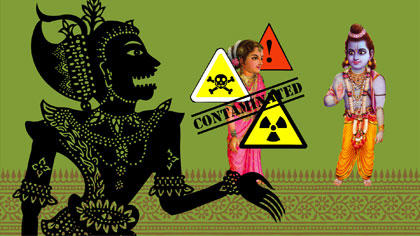Addendum to Culture is Anti Rivalrous
Why do I say Culture is not a Commons?
Because a commons is a publicly or collectively owned good, and culture can’t be owned. Page 12 in Lewis Hyde’s Common As Air (see article on why air isn’t a metaphor I’d use) refers to “the old idea of ‘the commons’ as a way to approach the collective side of ownership.” Whoa there. We agree that Culture shouldn’t be privately owned, but where I differ is that Culture shouldn’t – and can’t – be owned at all. When we call Culture a commons we remain in the framework of culture-as-property, the framework of ownership.
But: Culture. Can’t. Be. Owned.
The correct answer to the question of “who owns culture?” is “no one.” Not Sony. Not “The Author.” Not “The Public.” No one owns Culture, because Culture isn’t property. So I prefer not to talk about it like it is property, or something that can be owned. So I don’t call it a commons.
Also, I wrote that real commons – real collectively owned goods – need to be regulated and/or managed, because they are rivalrous and/or scarce. Calling Culture a commons implies that it needs to be regulated and/or managed. That sometimes betrays an unexamined belief that copyright is “natural,” that private interests could somehow step in and “own” Culture without interference. But Copyright and cultural ownership are completely artificial, legal fictions, State-granted monopolies that can only exist if Culture is artificially (and misguidedly) “managed.” So again, calling Culture a Commons implies it needs to be “managed”, reinforcing the same mental framework that allows copyright and the private ownership of ideas to thrive.
I’m not going to fight against anyone calling Culture a commons. Most progressives do it, and we should be working together, blah blah etc. But I did want to clarify why I wrote that Culture is not a commons, since it may freak some people out. Sometimes I refer to “our shared cultural heritage,” which is about as close as I come to calling it a commons myself. Language is tough. For example, there’s no word for the opposite of property. Until there is, it may be difficult to wrap our heads around the idea that something actually isn’t property and can’t be owned, collectively or privately.
At least I can use the word anti-rivalrous now.



